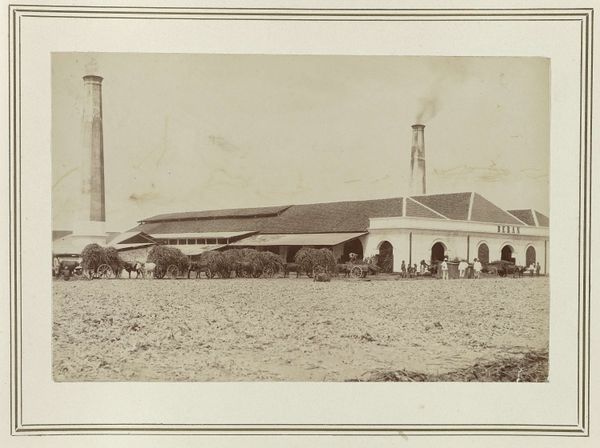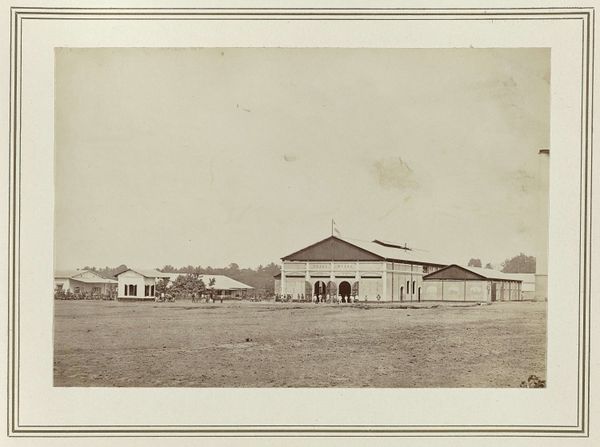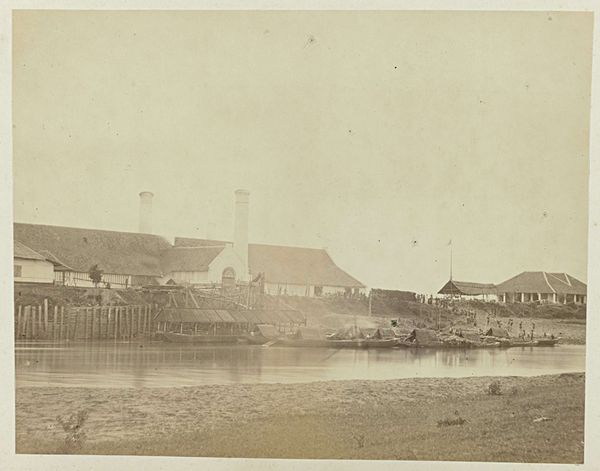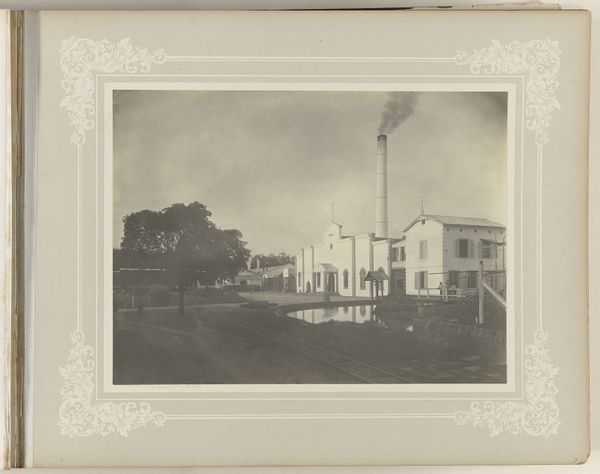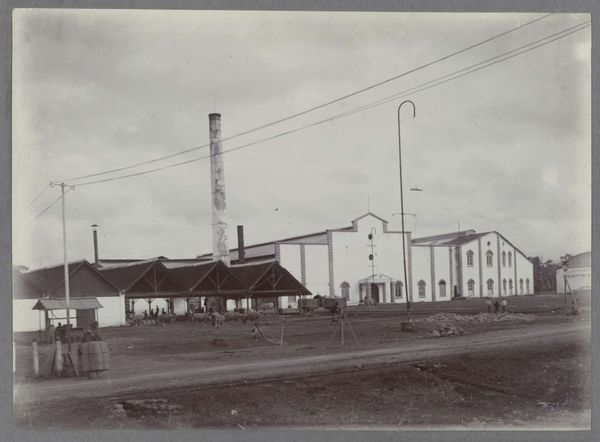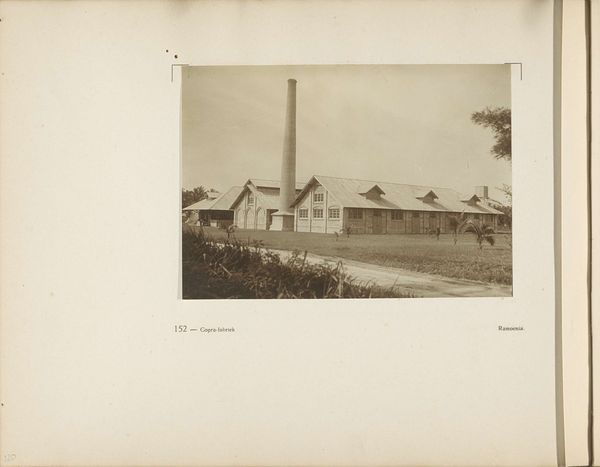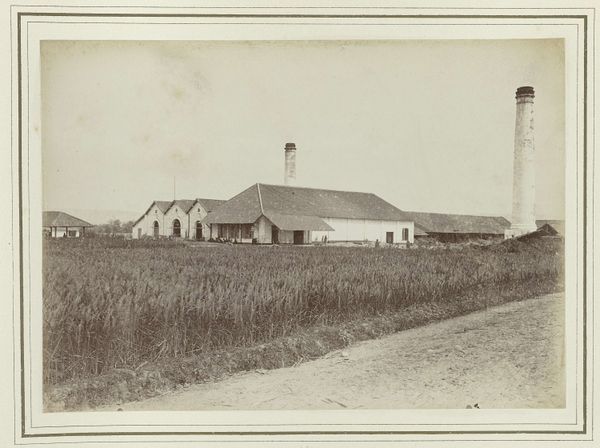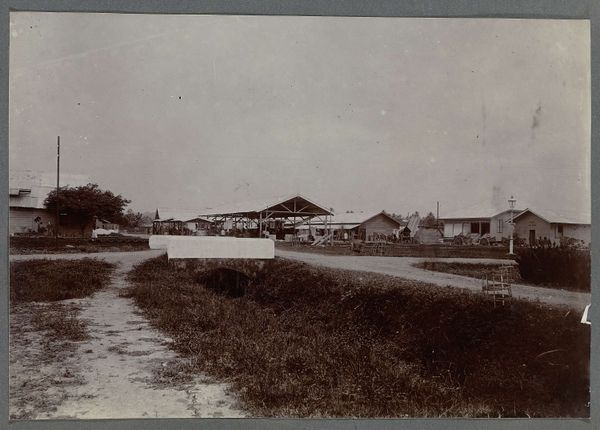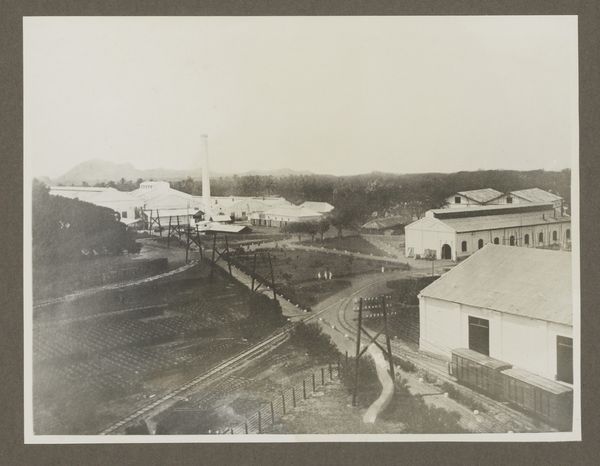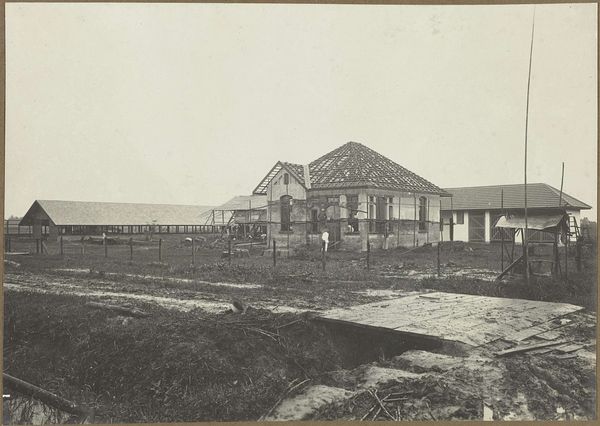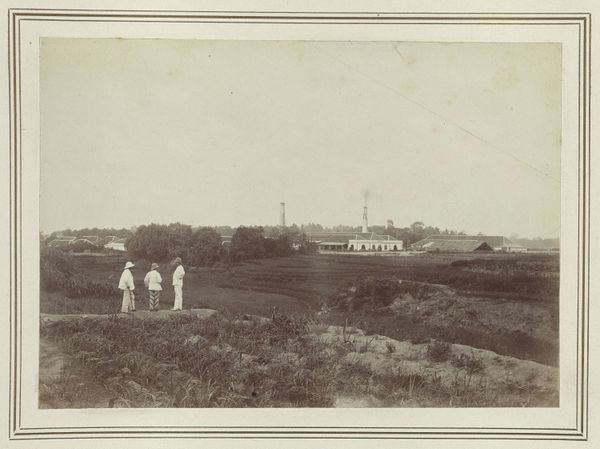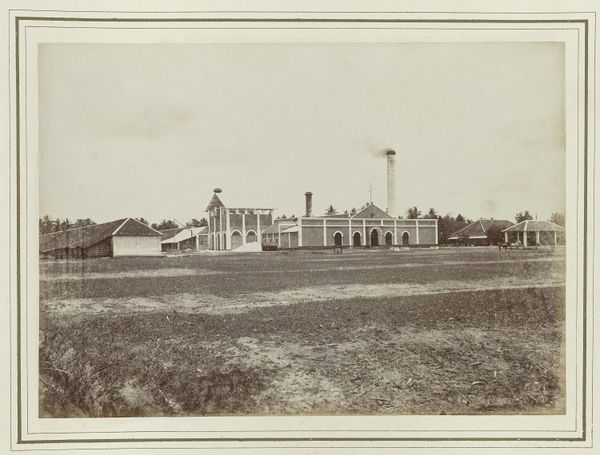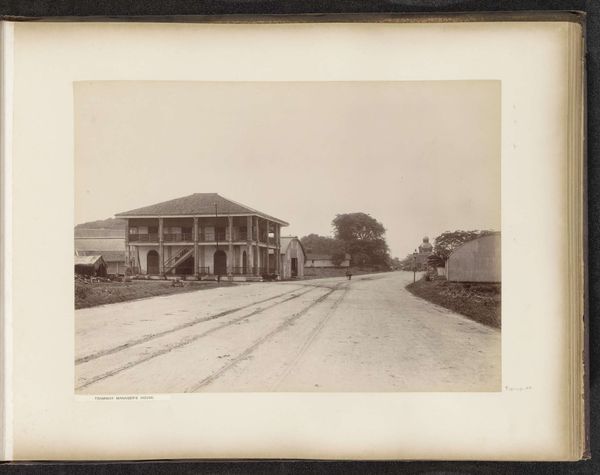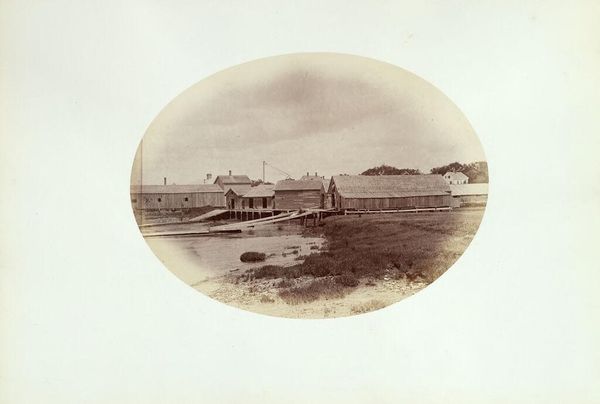
print, photography
# print
#
landscape
#
photography
#
historical photography
#
19th century
Dimensions: height 150 mm, width 210 mm
Copyright: Rijks Museum: Open Domain
Curator: The scene before us is an 1886 photograph titled "Fabriek Beran" by Kassian Céphas, housed here at the Rijksmuseum. The albumen print captures an industrial factory complex in Indonesia. Editor: It’s remarkably bleak, isn’t it? The vast, empty foreground and the pall of smoke...it conveys a sense of desolation. Curator: Indeed. That open space speaks volumes. It places the viewer at a distance, perhaps symbolizing the social and economic distances created by this kind of industry during Dutch colonial rule. It's a carefully constructed vista, I think. Editor: Precisely. And consider the architecture—a stark contrast to the Indonesian landscape. Those smokestacks especially, belching what appears to be unrelenting plumes of progress, perhaps without much regard for consequence. How do the local communities relate to this symbol of progress? What is their perception of this image and place? Curator: A vital question to unpack. We must acknowledge Céphas’ role as court photographer in Yogyakarta, Java. His commissioned work documented many aspects of life, and this image participates in that broader context. How did colonial photographic practices impact subjectivities and power structures? What visual tropes were being normalized? Editor: Also, it makes me consider environmental racism. Who is bearing the brunt of this pollution? Does this visual evidence prompt deeper questions about environmental impact and exploitation under the guise of progress, issues that sadly persist today? Curator: It does. Thinking intersectionally, one might ask: how did race, class, and gender interact within the labor dynamics of this factory? The photograph invites speculation and historical inquiry into power structures and individual stories lost to time. Editor: It’s powerful how this relatively small, seemingly straightforward landscape photograph opens onto such expansive questions about social justice. Curator: Agreed, a silent, photographic witness to a complex past. Editor: A somber reminder of progress's shadow.
Comments
No comments
Be the first to comment and join the conversation on the ultimate creative platform.
